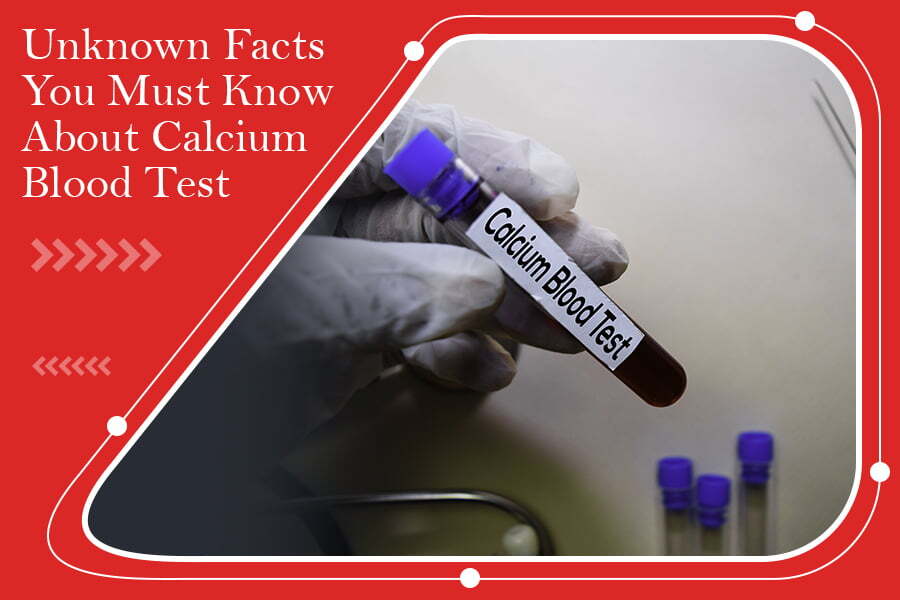Calcium blood test is imperative for measuring the full calcium amount present in blood. Being the most significant mineral it holds the health of the bones and teeth. Also, a pivotal role is played by this mineral to retain the normal functional ability of the muscles, heart and nerves.
Due to its integrity, it has to be ensured that this level remains within a certain range. Even sometimes, another test called ionized calcium blood test is suggested to the patient for having a look at the count of the free calcium present in blood. It is not responsible for bounding any proteins together with blood anion at all.
Here, in this blog, we will keep a detailed insight into the significance of calcium blood test and maintaining its proper level in the blood. So, read on to know them
Test purposes and uses
Mainly, bone profile blood tests or calcium blood tests are suggested considering as a part of regular metabolic panel. It is usually performed during general physical overall examination. If doctor suspects low or high symptoms of calcium level then only this test is recommended. This test can be also suggested during suspecting certain medical conditions in an individual like kidney disease, cancer, malnutrition or parathyroid disease.
Test preparation
Sometimes your doctor will advise you to stop taking any specific supplements and medications or fasting prior your bone profile blood test. The medications which can comprise the list are mentioned below:
· Calcium supplements
· Vitamin D supplements
· Calcium containing antacids
· Thiazide diuretics
· Lithium
Ensure that the doctor is familiar with the supplements and medications you are taking at present. They only you will be provided with the suitable guidelines before performing the test. Moreover, consumption of drinks and foods mainly rich in calcium can also heighten its level in the blood interfering with the test result completely.
Test procedure
In this test, your phlebotomist or healthcare provider will collect blood sample from the arm for analysis. For doing so an insertion of needle will take place in the vein of your arm to draw the blood and collect it in the tube. Withdrawal of blood will get over within 5 minutes. However, a pinch can be experienced by you during insertion of the needle.
Test results
In general, the normal range of the calcium in a healthy adult is within 8.6 to 10.2 (mg/dL) milligrams per decilitre. However, this range varies from one laboratory to another. For the interpretation of the individual test report, reference ranges should be always used that mentioned along your test report.
What higher level means?
When the value of the test report states higher than the reference range then it is cleared that you suffer from excessive high calcium level. This medical condition is usually regarded as hypercalcemia.
Some of its potential symptoms are:
· Bone pain
· Excessive thirst
· Constipation
· Frequent urge of urination
· Abdominal pains
· Low appetite
· Vomiting or nausea
· Weakness or tiredness
Conditions and diseases which lead to hypercalcemia are given below:
· Excessive intake of vitamin D or calcium via supplementation
· Medication like thiazide and lithium diuretics
· Immobilised or bedridden patients for a long time
· Sarcoidosis the inflammatory disease that leads to granulomas all over the body
· Adrenal gland or kidney failure
· Hyperthyroidism (highly-active thyroid gland)
· Primary hyperparathyroidism or any cancer type (highly-active parathyroid gland)
In case you have hypercalcemia contact with the doctor for identifying and addressing the condition which leads to its development.
What lower level represents?
If the level of calcium drops down significantly than that of referring range then this condition is known as hypocalcemia. Usually, it occurs when a body loses excessive calcium via urine and hence there is a deficiency in the level in blood and bones.
Some of its symptoms are:
· Irregular heartbeat
· Tingling sensation in fingers
· Muscle or abdominal cramps
It can occur due to the following causes:
· Hypoparathyroidism (inactive parathyroid gland)
· Kidney failure
· Vitamin D or calcium deficiency in the diet
· Trouble in absorbing calcium
· Pancreatitis (pancreatic inflammation)
· Specific medications like corticosteroids, rifampin (antibiotic) and anticonvulsants
· Low albumin level in the blood due to liver disease or malnutrition
The doctor will treat this condition using Vitamin D and calcium supplements. Also, if there is any underlying condition or disease that will be identified and treated as well.
Conclusion
Calcium blood test is helpful for the measurement of complete calcium amount in the blood. This test will be prescribed by the doctor as a regular metabolic panel check. Also, if you experience any specific symptoms suspecting any abnormality in the calcium level then the test is also suggested. However, never attempt doing anything on your own.
Always consult with the doctor on a prior note! In most cases, both low and high level can be treated easily. But if there is any trace of underlying serious medical complexity the combined treatment plan is needed for addressing the issue. Book a consultation appointment with your doctor to undergo private blood tests in London for assessing the affect of calcium levels.






You must be logged in to post a comment.